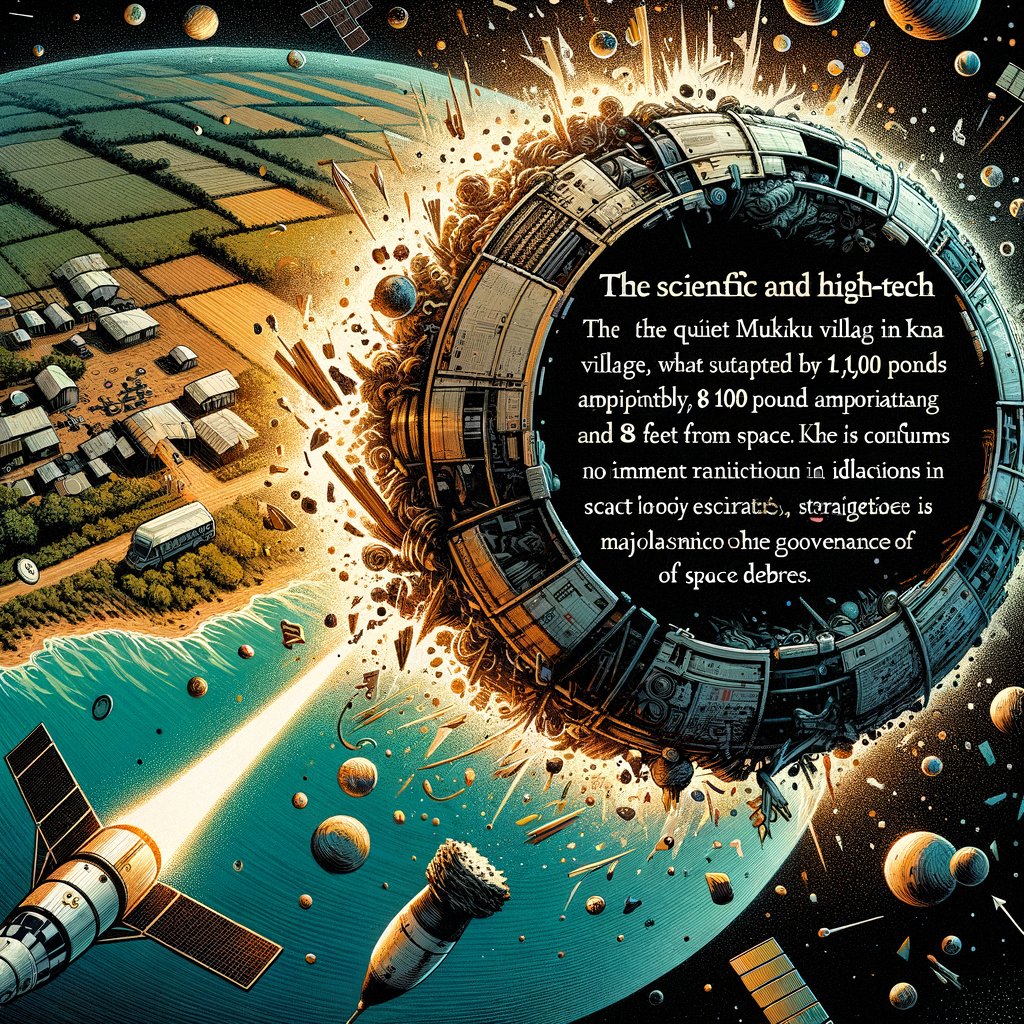Image created by AI
Space Debris Crisis: 1,000-Pound Metallic Object Crashes into Kenyan Village
The tranquility of Mukuku Village in Kenya was abruptly disrupted when a massive ring-shaped object, weighing approximately 1,100 pounds and spanning 8 feet in diameter, fell from the sky and crash-landed in the local area. The incident, which occurred around 3 p.m. on a quiet Wednesday, fortunately resulted in no injuries, but it has raised grave concerns about the growing problem of space debris.
The Kenya Space Agency swiftly responded, confirming the object's origins from space and ensuring it posed no immediate threat to the villagers. Major Alois Were of the Kenya Space Agency informed Citizen TV that the object is likely a part of a rocket's separation stage, yet the exact ownership remains unconfirmed. The agency is currently analyzing debris fragments to trace its origins and determine the responsible party.
This event in Kenya is part of a larger, alarming trend. The number of objects launched into space has escalated dramatically, with records showing around 250 launches in 2024 alone, significantly higher than the previous decade's average. This increase has intensified the risks both on Earth and in the orbital paths surrounding our planet.
Globally, space debris has been recognized as a pressing issue. Thomas Berger, a physicist, highlighted at an American Geophysical Union meeting the severe potential for a chain reaction of collisions in space due to the density of debris orbiting Earth. Such a scenario could render space activities and critical satellite operations nearly impossible.
For now, Mukuku Village remains safe, yet the incident serves as a compelling reminder of the potential dangers space debris poses not only to individuals but also to global infrastructure. Experts like Jonathan McDowell warn that without significant improvements in debris monitoring and mitigation strategies, future incidents could result in serious injuries or even fatalities.
Efforts are ongoing internationally to address these challenges. The Kenya Space Agency, using international legal frameworks, seeks to hold the owners of space debris accountable, reinforcing the need for compliance with regulations designed to minimize such risks.
As we venture further into the space age, it becomes imperative for global cooperation in the governance of space debris. Heightened tracking, improved design for disintegration, and stricter regulatory compliance are essential to ensuring the safety of both terrestrial and space environments.










